Brexit: Issue that nearly scuppered border talks
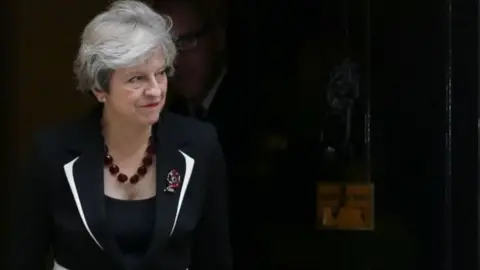 AFP
AFPThe wording of the UK's Brexit deal with the EU has finally been agreed - but negotiations were nearly scuppered this week over the tinder-box issue of the Irish border.
When Theresa May appointed ministers to her specially formed Brexit Cabinet Committee it was an early sign that she had failed to realise the significance and importance of the Irish border.
I interviewed James Brokenshire shortly afterwards and he was left having to awkwardly defend his exclusion in favour of, among others, the International Development Secretary and the Conservative Party Chairman.
The truth is, during those early stages, the Prime Minister was perhaps more concerned with keeping her own party together rather than addressing the practical problems of Brexit.
The cabinet committee was a carefully balanced selection of leavers and remainers.
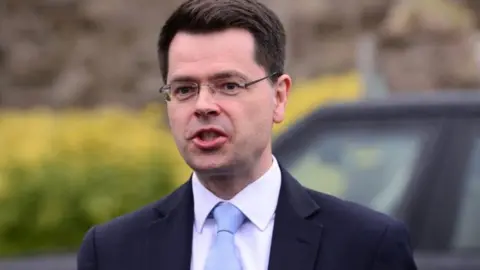 PAcemaker
PAcemakerBesides, she seemed to reason, if you included the Secretary of State for Northern Ireland how could you exclude his equivalents representing Scotland and Wales?
However, it did not go unnoticed in Dublin.
From the start there has been frustration there at what they see as internal party politicking at the expense of dealing with one of the really big issues of Brexit - the border.
'A form of words'
In the Irish government's view, since the Brexit vote, Brussels has seemed more concerned than Westminster about the implications for Northern Ireland.
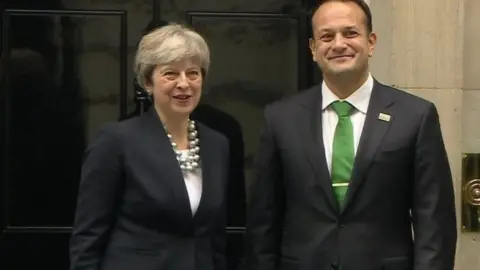
There is some sense in the UK's position.
The sticking point has never been about the free movement of people but instead the transport of goods.
The final trading deal could ultimately decide whether there is a need for customs posts on the island of Ireland.
However the Irish government is not prepared to wait until 2019.
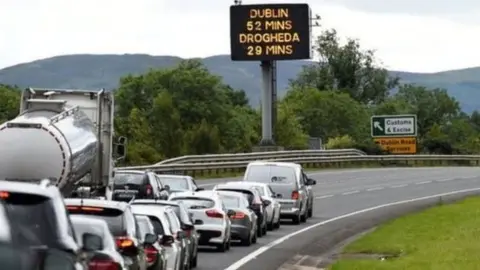 Reuters
ReutersAnd given that they could veto negotiations moving on to that vital issue of trade the UK has had to listen.
It was with that in mind a form of words was worked out in Downing Street to satisfy the Irish.
What seems bizarre is that they did not keep the DUP fully informed.
Derailing the deal
Amid all the hoopla and what was to be the early celebration of an apparent deal on Monday, unionists were left less-than-quietly fuming.
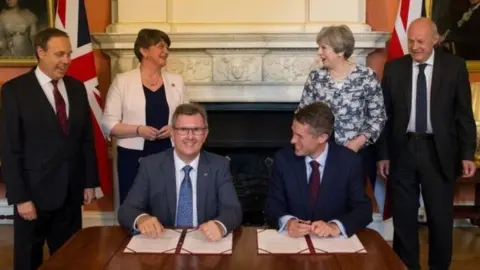 Reuters
ReutersFor weeks, they had been issuing pretty explicit warnings that Northern Ireland should not be treated any differently to England, Scotland or Wales.
He said anything else could ruin their relationship with the Conservative government, who rely on the Democratic Unionists' support at Westminster.

"If there is any hint that in order to placate Dublin and the EU, they're prepared to have Northern Ireland treated differently than the rest of the UK, then they can't rely on our vote," Mr Wilson announced last Thursday.
Remember that was just days before the UK put forward the controversial text that derailed the whole deal.
Not showing the DUP those words before Theresa May travelled to Brussels seems truly remarkable, particularly as they seemed to promise that Northern Ireland would indeed be treated differently.
They won't accept Dublin having any say in day-to-day affairs north of the Border and have even accused the Taoiseach Leo Varadkar of pushing a united-Ireland agenda in these tortured negotiations.
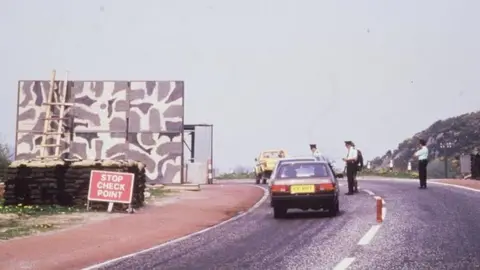 PAcemaker
PAcemakerThe DUP deputy leader Nigel Dodds recently set out the constitutional difficulties for the party in having Northern Ireland tied to the EU's regulations.
"Northern Ireland would have to have somebody else other than the United Kingdom speak for it and vote for it in the European Councils," he told me at the DUP's party conference.
"Who would that be? It would be Dublin. It would be completely unacceptable."
Conspiracy theories
There have been many conspiracy theories touted, particularly in Belfast where the DUP's position is most clearly understood.
Some commentators have written pieces saying it is just not feasible that Downing Street could have got it so wrong and there must be a negotiating ploy in play here.
The reality appears to be a lot more simple.
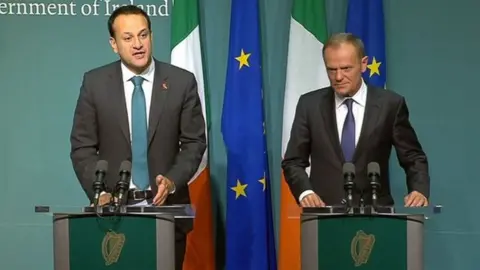 RTÉ
RTÉFaced with time running out and Donald Tusk reinforcing that the Irish government had the right to veto talks from moving on to phase two, negotiators came up with the best phrasing they could find.
But there is a simple problem with that - what the DUP, London and Dublin want are mutually exclusive.
The Irish government is demanding no trading differences between Northern Ireland and the Republic.
The DUP insists there can be no trading differences between Northern Ireland and Britain.
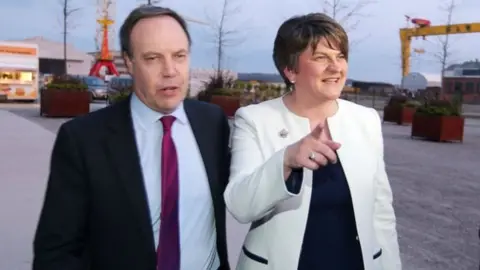 Press Eye
Press EyeEarly on some seemed to think that the question of the Irish border could be easily answered because no one wanted a 'hard border'.
The practical challenges meant that was never the case and a failure to grasp that at an early stage has left Theresa May in the middle of two Brexit negotiations - one with the EU and the other with the DUP.
